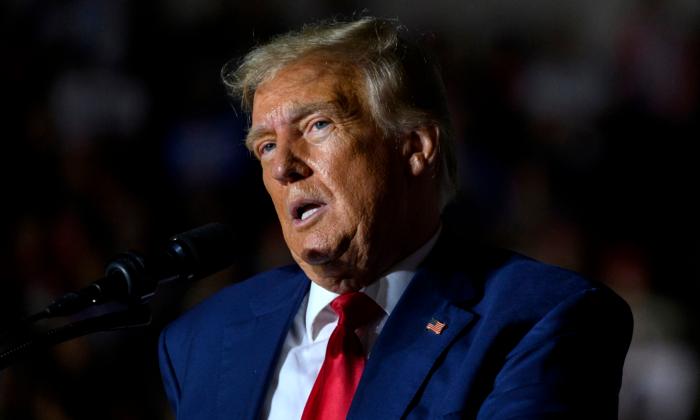U.S. Customs and Border Protection (CBP) said Oct. 20 that it found “conclusive evidence” a Chinese company used forced labor to process the sweetener stevia, and has ordered U.S. ports to seize all shipments.
After an investigation, CBP said it had determined that Inner Mongolia Hengzheng Group Baoanzhao Agriculture, Industry and Trade Co. (Baoanzhao) used convict, forced, or indentured labor to produce stevia extracts and derivatives, the agency said in a
statement on Oct. 20. It added that those products are being, or are likely to be imported to the United States. Stevia is a plant extract used as a sweetener in sodas and other foods.
The investigation began after the agency received a tip in 2016 from a nongovernment organization that stevia produced by the Chinese company was made with prison labor. That year, the CBP issued a detention order on imported stevia produced by Baoanzhao, based on “reasonable but inconclusive proof” of forced labor.
The CBP determination, the agency’s first ruling forced labor finding since 2006, instructs U.S. port directors to seize any shipments and commence forfeiture proceedings.
“Today’s finding tells U.S. importers who fail to eliminate forced labor from their supply chains that their shipments may be subject to seizure and forfeiture,” Brenda Smith, executive assistant commissioner of CBP’s Office of Trade, said in a statement.
A September
notice posted on the website of China’s Inner Mongolia government suggests that Baoanzhao is a prison labor enterprise that operates under the jurisdiction of the Inner Mongolia Prisons Administration. The company said in the notice that it would “enhance the Party’s absolute leadership to prison enterprises.”
The Chinese company couldn’t be reached for comment.
In August, U.S. company Pure Circle USA
agreed to pay a $575,000 fine to settle a CBP investigation into the question of whether it had imported stevia from Baoanzhao made with forced labor. Pure Circle didn’t admit liability at the time as part of the settlement with CBP, but agreed to pay the fine to end the costly investigation.
The agency has stepped up its investigations of imports suspected to be made with forced labor in China. Since September 2019, it has issued nine detention orders or “Withhold Release Orders (WROs)” against products from China.
In September, the CBP
issued five WROs against cotton, hair products, clothing, and other products made in Xinjiang, cracking down on the regime’s “illicit, inhumane, and exploitative practices of forced labor.” The regime has detained more than 1 million Uyghur Muslims and other Muslim minorities in the northwestern region.
In June, the CBP
seiz
ed 13 tons of human hair products worth $800,000 suspected to have been made by forced labor in the region of Xinjiang, China. Activists and researchers believe the hair was sourced from Uyghur Muslim inmates detained in the region’s vast network of internment camps.
Eva Fu contributed to this report.




